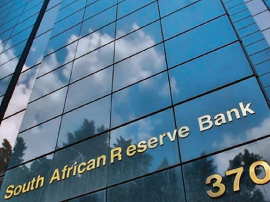
South Africa’s financial sector has taken another huge step towards modernising the country’s payment ecosystem.
This comes after the South African Reserve Bank (SARB) on Thursday announced the adoption of a new global messaging standard by its domestic real-time gross settlement (RTGS) system, participant banks and other financial market infrastructures (FMIs).
South Africa is one of the first countries on the continent to adopt the International Organization for Standardization (ISO) financial messaging standard ISO 20022, which is expected to underpin all high-value payments in reserve currencies by 2025.
In a statement, the central bank said the ISO 20022 – being driven through the Society for Worldwide Interbank Financial Telecommunication (SWIFT) – will introduce a harmonised message exchange mechanism for payments across the globe, allowing for richer, better quality data in payment processing and settlements.
“SWIFT has set a 2025 deadline by which all users in its network must have transitioned to this messaging standard,” the SARB said.
The move was necessitated by the rapid development of disruptive technology, evolving cyberthreats, increased regulation and demands from customers for faster, more cost-effective payments.
“The adoption of the ISO 20022 standard is expected to improve compliance and transparency, increase efficiency and interoperability, enhance customer experience, and speed up payment systems harmonisation.
“At the heart of this change is the switch from the legacy proprietary messaging format known as Swift Message Type (SWIFT MT) to the ISO 20022 Extensible Markup Language (XML).
“The adoption of XML – a language and file format for storing, transmitting and reconstructing information – will allow for the exchange of richer, more granular data, including the details of the remittance, the purpose of the payment, the original source and ultimate beneficiary along with any relevant supplementary data,” the SARB said.
The ISO 20022 migration, the bank said, represents a change in the global payments landscape.
“Its adoption in South Africa is a pivotal marker in the country’s efforts to renew and modernise its domestic payments infrastructure, including our RTGS system – the South African Multiple Option Settlement (SAMOS) system.
“Having guided the domestic ISO 20022 adoption, the SARB will be supporting this change through the Southern African Development Community (SADC), as the operator of the SADC-RTGS. The switchover for participants in the SADC-RTGS is expected to be completed by October 2023,” said the SARB.
The SARB, which owns and operates SAMOS, participating banks and other FMIs went live with the ISO 20022 adoption over the weekend of 17 – 19 September 2022.
“The EFT debit system has already embedded the ISO 20022 format, with the introduction of the DebiCheck service that enables consumers to authenticate early debit orders attached to their accounts.
“The migration will also pave the way for faster payments through the introduction of the Rapid Payments Programme (RPP), which is expected to be launched in 2023. The RPP, to be launched under the brand Payshap, is an industry-led initiative under the leadership of BankservAfrica and the Payments Association of South Africa (PASA).
"When rolled out, the RPP will offer a cost-effective instant payment service across banks, a proxy service to embed user banking details, a request to pay service as well as support for several known retail payment use cases,” said the bank.
In the retail payments space in the SADC region, the Transactions Cleared on an Immediate Basis (TCIB) system, operated by BankservAfrica, was implemented in August 2021, using the ISO 20022 message standard. The TCIB is a cross-border, low-value payment scheme that enables the immediate clearing of single credit ‘push’ transactions, settled on a deferred basis.
The scheme is open to all banks and authorised non-banks across the SADC, with integration points into other African regions, including the East African Community (EAC) and the Common Market for Eastern and Southern Africa and East African Community (COMESA). – SAnews.gov.za


